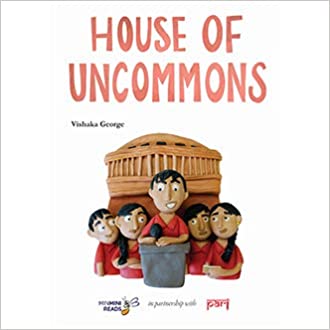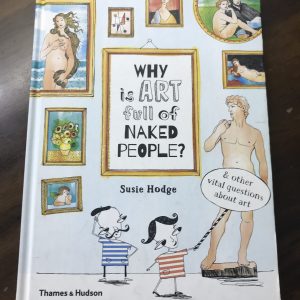‘House of Uncommons’ by journalist-author Vishaka George (Karadi Tales) brings forth a sensitive story of endurance and hope. An uplifting story about HIV+ youngsters and their journey to live a normal life.
The story is about Krishnan a teenager from Chincholi village in Karnataka. He is on his way to Snehago -the Village of Love in the district of Krishnagiri in Tamil Nadu. Krishnan is an unwilling traveller. He is unsure as to why his uncle is taking him there, leaving home far behind. He has with him just a few clothes and his late mother’s a blue sari as keepsake.

His first image of Snehagao is an untarred road with big stone buildings. There is a large rose garden in front and towering ghats in the distance.
But why is Krishnan at Snehagao? What’s so special about the place? Why are he and many other boys and girls like him put up there? Vijaykumar, the principal, explains that Snehagao was started by a team of doctors from Bangalore. The institute was for HIV + (Human Immunodeficiency Virus) children whose parents had passed away because of the incurable virus.
Sadly, the children have got the virus. The extended families do not have the resources to care for them. Hence with help from sponsors the 40 adolescent children of varied ages will stay and study there. They would follow an open school system. This was because most of the students have not attended school for a while.
Soon Krishnan makes close friends with Raman his roommate, Ambica and Sarla. The days pass by. Students study and also participate in sport activities.
Krishnan finds that he enjoys running. Initially painful, but with regular practice he picks up speed. His sports teacher Coach Rohan notices Krishnan’s dedication and strong potential as a marathon runner.
At Snehagao, they conceptualise the idea of the parliamentary system for students, that is, a student council. No wonder the title, House of Uncommons seems apt there! It is successfully implemented just to foster in them feelings of self- reliance. Right from speeches to voting for position of Prime Minister, ministers for education, health, law and order the children shoulder the responsibilities put forth to them. Krishnan and his friends all win prestigious posts. They with liaison with teachers organize activities. They hold competitions, overseeing work of other ministers. Most importantly, they see that all children take their medicines on time.
In just a matter of six months the untarred road to nowhere that is Snehagao apparently leads somewhere for Krishnan and all his friends.
With ‘House of Uncommons’ Vishaka has cleared many misconceptions that we still may have about HIV. An inspiring bittersweet story it conveys to us that the young HIV + children can live a normal enough life. They can work, enjoy a family life with proper attention paid to diet, nutrition and adhering to the right treatment of ART (antiretroviral therapy) they have to follow lifelong.
I find that the proverb ‘A Little Knowledge is a Dangerous Thing’ is valid in the cpntext of this book. HIV + patients can be hurt by our insensitive actions and words if we choose to be ignorant to their trauma. When we hear about an HIV person, people may shun them. We need to know it is not contagious. We attach stigma and unfairly discriminate against them. The HIV + children are the most troubled for the hurt they have to endure for no fault of theirs.
House of Uncommons is ideal for school libraries, book clubs and reading circles for discussions. One can use it as a guide for imparting information about AIDS/HIV in a nuanced and yet sensitive manner. It is apt for the teenage and YA readership.
House of Uncommons from the MinMini Reads Karadi Tales is a set of 5 books. This is in collaboration with PARI (People’s Archive of Rural India). The goal is to bring stories from diverse rural India to the urban kids.




